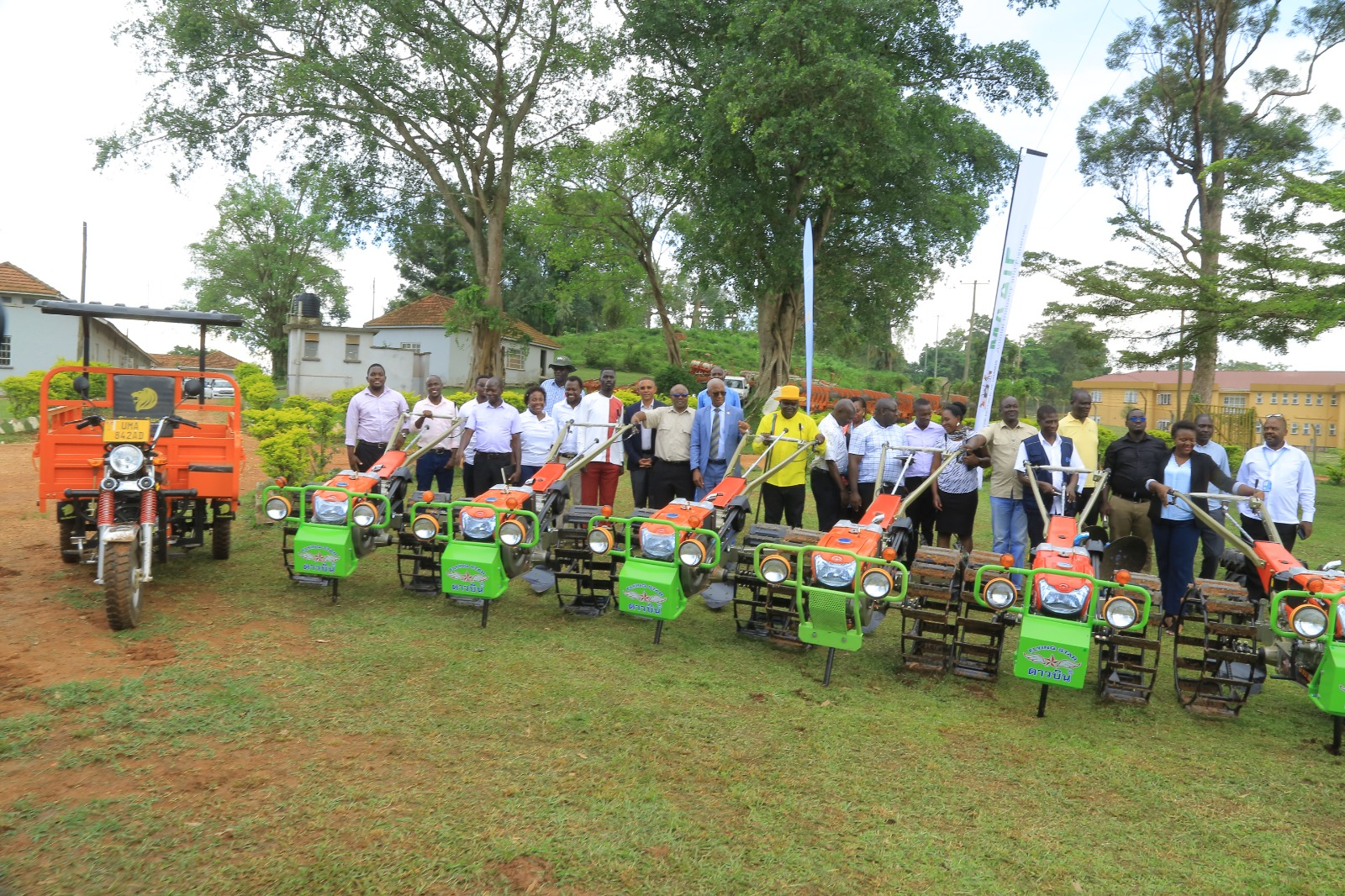WAKISO, April 16, 2025 –– Farmers from Uganda’s Karamoja Sub-region have received a significant boost after the Food and Agriculture Organization [FAO)]of the United Nations, in partnership with the Ministry of Agriculture, Animal Industry and Fisheries [MAAIF], handed over 55 walking tractors to support agricultural production.
The handover ceremony took place at the National Agricultural Mechanisation Referral Centre in Namalere, Wakiso district. The event was part of the “Fostering Sustainability and Resilience for Food Security in the Karamoja Sub-region” [F-SURE] project, which aims to bolster the region’s capacity to open land and improve food production.
Dr. Antonio Querido, the outgoing FAO Country Representative in Uganda, emphasised the transformative power of mechanisation.
“This equipment will revolutionise the lives of its recipients. We firmly believe mechanisation is key to transforming Africa’s agri-food system. For too long, we’ve relied on manual tools like the hand hoe, resulting in inefficient production systems,” he said.
Jointly designed by FAO, MAAIF, and UNDP, the F-SURE project targets key challenges in Karamoja. Querido noted that the project has already reached over 12,000 farmers through various components, including technology adoption to increase productivity.
Eng. Francis Waneloba , from the MAAIF reaffirmed the government’s commitment to inclusive agricultural growth. He said the government is particularly focused on ensuring that the Karamoja Sub-region is not left behind. To achieve this, they are promoting a shift from traditional pastoralism to agro-pastoralism, where both livestock and crop production can thrive.
He stressed the importance of sustainable practices such as water provision and pasture development closer to homesteads, aiming to reduce conflicts and improve co-existence between crop farming and livestock.
Dr. Paul Ayella of MAAIF explained that the project is structured into two major components. The first component, implemented by UNDP, focuses on developing supportive policies and incentives at the district level to improve crop and livestock production, food value chains, and integrated natural resource management.
The second component, led by FAO, is centered on increasing land under integrated and sustainable land management practices, boosting the productivity of the Karamoja landscape. It also introduced frameworks for resilience monitoring and integration into production systems.
Kotido LCV Chairperson, Paul Lotee Komol, expressed gratitude on behalf of the region. “On behalf of the people of Karamoja, I extend my deepest gratitude for the strong support you’ve provided to Uganda, particularly our region. FAO has been a vital partner in Karamoja’s development,” he said.
He also lauded the Ministry of Agriculture for its central role in national development, urging the ministry to fast-track additional support for livestock and irrigation, including the construction of mega dams in each of Karamoja’s nine districts.
The donation includes 55 walk-behind tractors equipped with attachments such as ploughs, seed planters, and trailers. In addition, over 40 water boilers and irrigation kits will support improved water management and boost resilience in the region.
The project will also provide training for farmer groups on how to operate the equipment and adopt sustainable agribusiness models. FAO technical advisors will continue to work with these groups to ensure proper operation, maintenance, and long-term impact of the machinery.
“We’ll continue working with these groups to guarantee the project’s long-term impact,” said Dr. Querido.
As the project moves forward, the tractors will be distributed among smallholder farmer groups through farmer field schools to promote mechanisation at the grassroots level. The Ministry of Agriculture has pledged to establish strong support structures to ensure sustainability and efficiency in equipment use.
The people of Karamoja are hopeful that this initiative will bring lasting transformation to their livelihoods and food systems.
https://thecooperator.news/karamoja-locals-thriving-after-benefiting-from-pdm/
Buy your copy of thecooperator magazine from one of our country-wide vending points or an e-copy on emag.thecooperator.news
